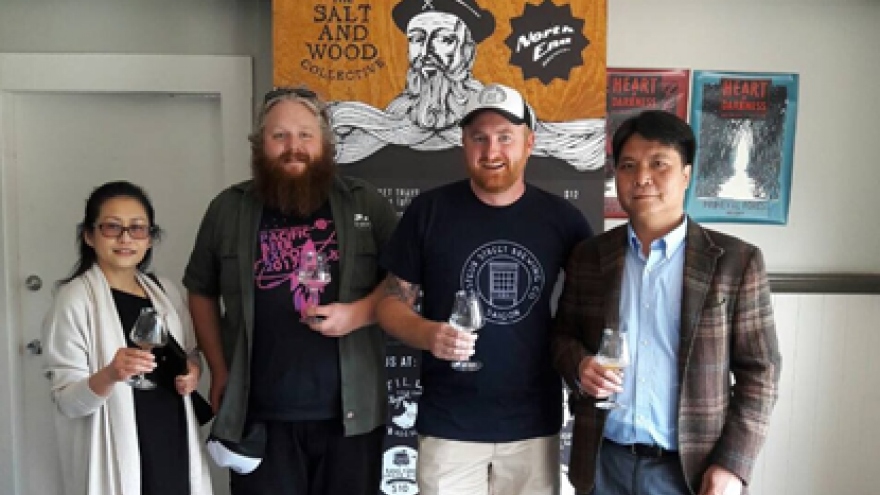Global giants see Vietnam through beer goggles
The young, hops-happy economy is alluring for big brewers like Asahi and Anheuser-Busch InBev.
Traditional markets are as dull as a flat pint. But entrenched interests, tech-like multiples and the mixed experiences of early entrants should caution them to enjoy responsibly.
Southeast Asia’s fastest growing economy also happens to be one of the last large beer markets to privatise. The country’s brew-friendly culture stands out in comparison with emerging Asian nations like India and Indonesia. In Hanoi, street-side “bia hoi” is common as coffee.
 |
| File photo of a Sebeco's Bia Saigon. Reuters |
This ticks a lot of boxes for suitors, as the government prepares to sell a majority stake in Sabeco, the market’s largest player worth more than US$9 billion. Habeco, the Hanoi rival, should follow. But brewers may wish to wait before clinking glasses.
The opportunity is not news to Big Beer. Heineken has a 5% stake in Sabeco, also known as Saigon Beer Alcohol Beverage Corp, and Carlsberg has a 17% share in Habeco. Both have struggled to win more control and squeeze out rivals.
For Heineken, Vietnam is its second most profitable market, but that is thanks to sales of Tiger lager and other brands.
One problem has been delay. The fiscal structure discourages officials from fast-tracking divestment of a tax-paying cash cow. But the bigger issue is price.
A phased process has driven up shares in Sabeco so they are trading at three times its December 2016 listing price. It now trades at a gobsmacking 43 times forward earnings.
Multinationals are certainly thirsty for growth. Asian players like Thai Beverage and big Japanese brewers face flattening demand at home.
This may explain why Asahi paid AB InBev top dollar for a batch of eastern European labels last year: almost 15 times EBITDA, higher than the 12 to 14 times norm.
The prospect of rivals stepping in is worrying for Heineken and Carlsberg. Either could risk splashing cash to keep competitors out.
But Sabeco’s enterprise value is now 38 times EBITDA, according to Eikon data. That’s a big bet on uninterrupted growth.



